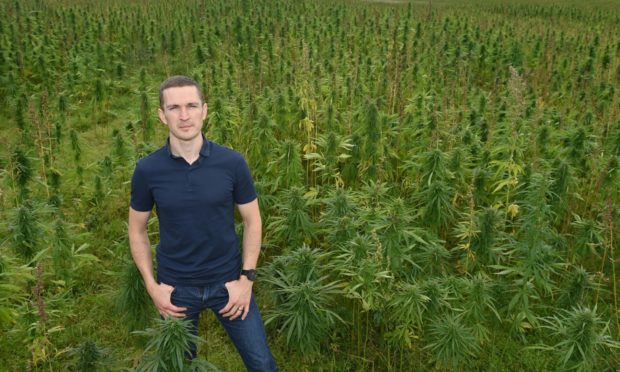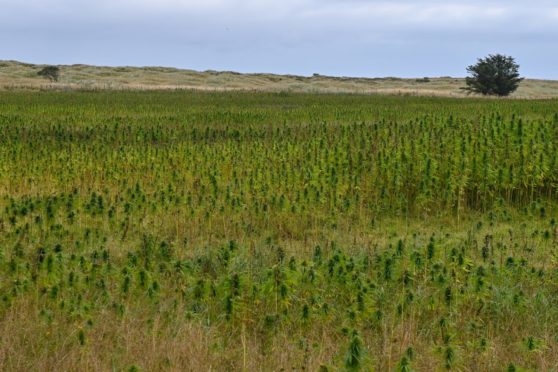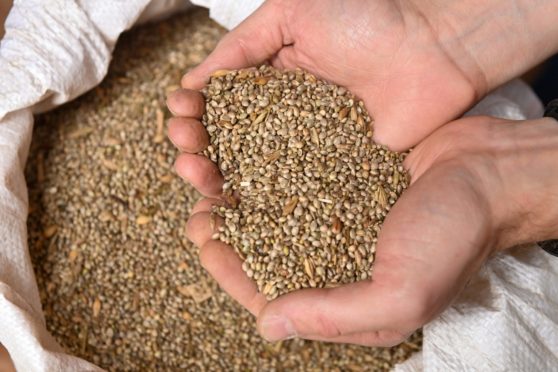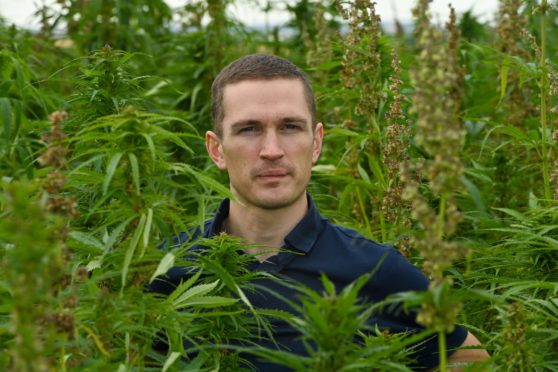Driving through the rolling fields of Aberdeenshire, some eyes may be drawn to an unusual looking crop that’s beginning to sprout.
Easily mistaken for the illegal spikey-leaved cannabis plants you’d normally see in Colombia, Aberdeenshire farmers have started a new initiative; replacing their barley crops with hemp.
But it’s not for the reasons you’d expect in the world-wide drug trade.
10 farmers across Aberdeenshire and Angus are using the plants to make premium products such as hemp seed oil, which is rich in Omega 6, and can be used for cooking and salad dressings.
Graeme Warren, farm manager at Waterside Farm near Ellon, says after a trial run last year, the farmers are ready to harvest a much bigger crop in the coming weeks.
The 36-year-old said: “We grow crops people normally do in Aberdeen,
“But I have been looking at the future of the farm and how we can reduce our inputs in terms of spraying less and not putting as much glyphosate on crops.
“Financially, hemp allows us to make the farm a bit more viable rather than continuing to just do crops like barley which is a commodity.”
Currently, the farmers are growing a seed variety of the crop, as use of the plant’s leaves and flowers are illegal in the UK.
Next year, Mr Warren plans to grow much more of the cannabis plant, hoping to use it for products such as animal food, building materials and insulation.
Moving forwards
And the farmers are keen to work together to move the industry forward as quickly as possible, while keeping most of the product to themselves, already in talks of their own premium Scottish hemp brand.
Speaking about the potential controversy over “dope” plants popping up in Aberdeeshire areas, Mr Warren insists: “You would need to smoke a whole bale of it to get high.
“We found that anyone we have spoken to has been really interested in it and really receptive at the opportunity to doing something different.
“The main difficulty we have is it is quite a difficult licensing regime because it looks like cannabis and it is still heavily regulated by the Home Office.
“We had to do background checks and have to pay £500 every few years for a license to grow it – so that it quite challenging.
“Some of the farmers who wanted to grow this year didn’t make it through the process because they had fields that were beside main roads which seems completely ridiculous because it is a really interesting crop.
“But it is still a bit tricky – we are hoping that by working as a group and working with people at the Scottish Hemp Association that we can start to improve over the next couple of years and make it a little bit easier for people to grow it.”
The Scottish Hemp Association are currently in talks with the Home Office in regards to farmers using another compound from the hemp plant – extracted from its flowers – CBD.
Currently farmers have to leave the flowers and leaves to degrade, despite European countries selling their leaves for use in hemp tea and CBD oil.



